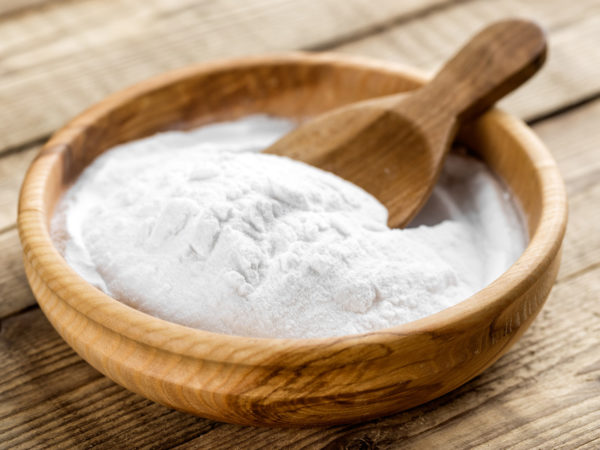What Is Xanthan Gum?
Is xanthan gum an okay ingredient? I see it listed on the labels of a lot of products and am not sure what it is and how safe it is.
Andrew Weil, M.D. | March 3, 2017

Xanthan gum is made by mixing corn or other sugar with Xanthomonas campestris, a species of bacteria that ferments the sugar. Xanthan gum is used as an additive in a wide variety of foods, is a common constituent of many cosmetics and personal care products, and is often used as a substitute for gluten in gluten-free products. (A recipe for gluten-free, low-fat brownies available on my site calls for a gluten-free flour mix that contains xanthan gum.)
You’ll also find it in baked goods and pastas, as well as in dairy products and salad dressings, where it serves as a thickening agent. Xanthan gum gives a “fat feel” to low-fat or no-fat foods. In ice cream it is used to prevent formation of ice crystals.
Xanthan gum is also used in medications and prescription drugs, particularly those used to lower blood sugar and cholesterol in people with diabetes, and as a bulk-forming laxative for treatment of constipation. It also may serve as a saliva substitute for dry mouth that occurs with Sjögren’s Syndrome, an autoimmune disorder that targets glands that produce saliva, tears, and other lubricating secretions. In addition, xanthan gum is used as a binder, emulsion stabilizer and skin-conditioning agent in a significant assortment of cosmetics and personal care products ranging from sunscreens to shampoos, toothpaste, baby soap and shampoo, mouthwash and more. You can find a complete list of the more than 3,400 such products that contain xanthan gum on the website of the Environmental Working Group (EWG). The EWG rates the overall hazard risk of the gum in these products as “low.”
The World Health Organization has set the maximum acceptable intake of xanthan gum as a food additive at 10 milligrams per kilogram of body weight and as a laxative at 15 grams per day. For people with diabetes, the maximum daily dose is 12 grams per day.
Xanthan gum can cause intestinal gas and bloating. And a Natural Medicines Comprehensive Database review advises women that because not enough is known about the use of xanthan gum during pregnancy and breast-feeding, it may be best to minimize intake of it.
Overall, there is nothing worrisome about xanthan gum as an ingredient, but because I don’t add it to foods I prepare at home, I prefer not to buy foods that list it as an additive.
Andrew Weil, M.D,










